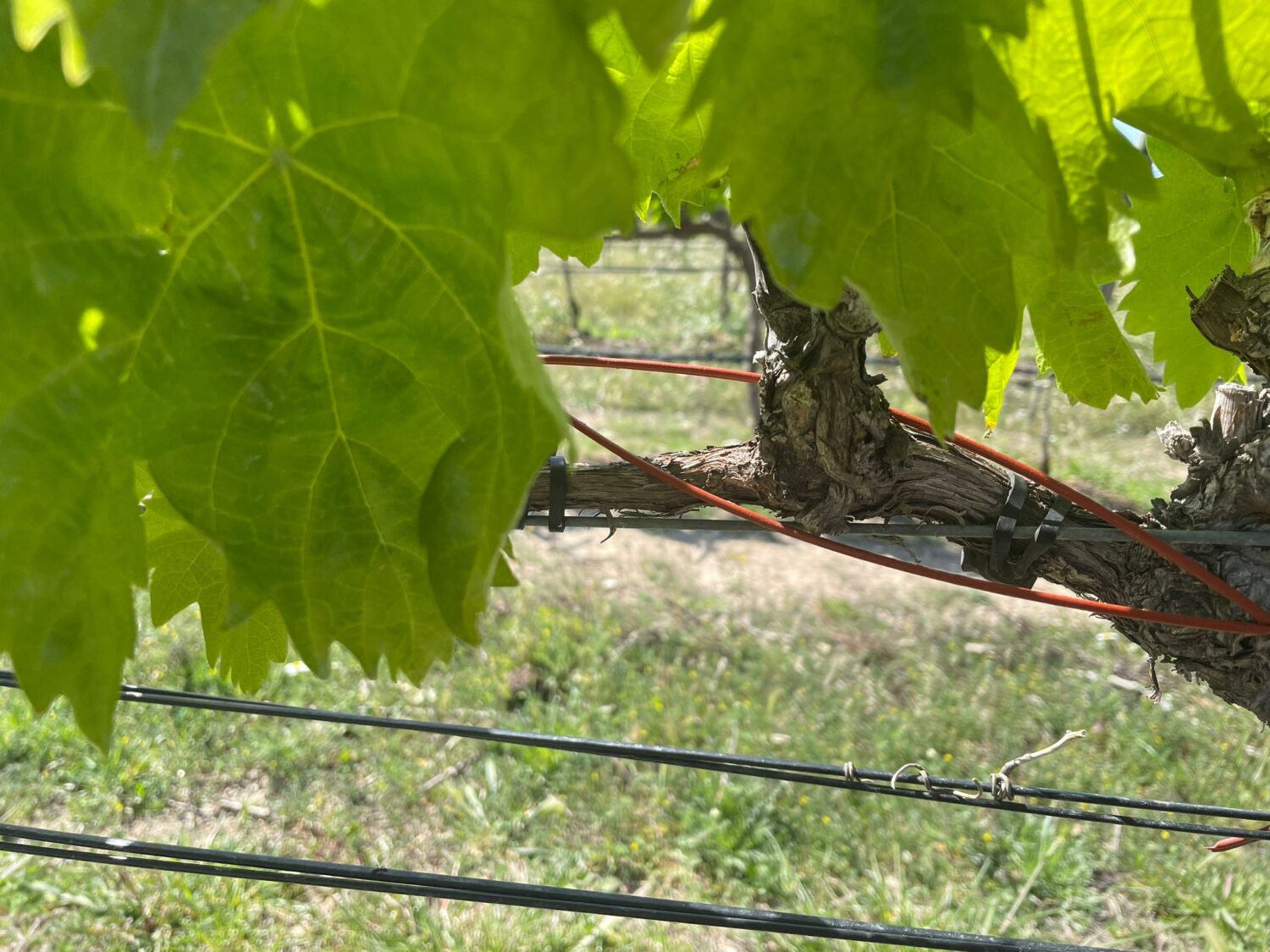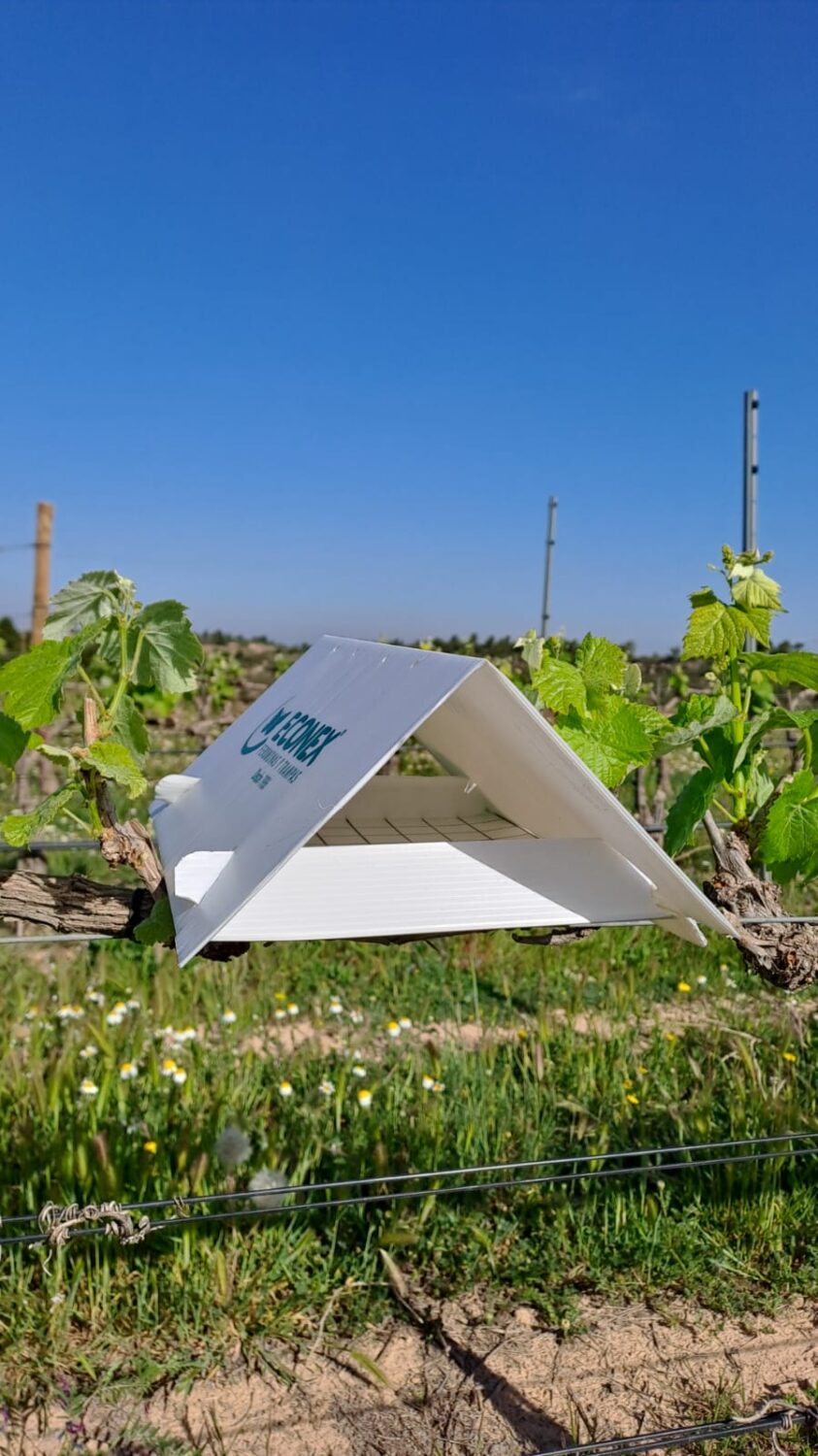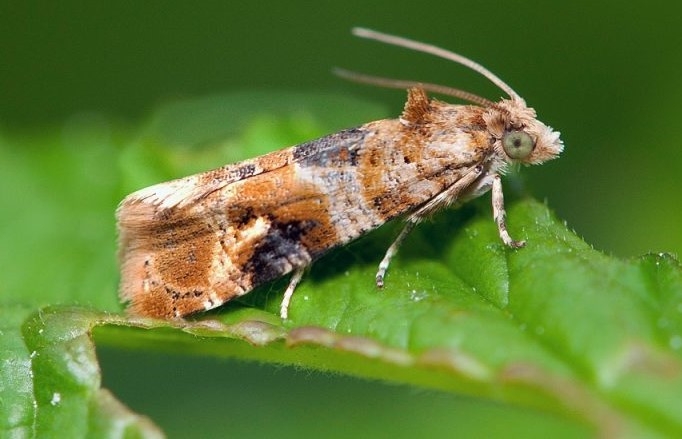In the world of viticulture, sustainable management has become a priority. Sustainable agriculture not only aims to protect the environment but also to maintain crop health and ensure product quality. In the specific case of the CLOS PONS vineyard, located in a privileged environment in the heart of Catalonia, Spain, an innovative approach has been adopted to combat pests and diseases threatening its precious grapes.
One of the main threats to vineyards is the grapevine moth, scientifically known as Lobesia botrana. This small but devastating pest can wreak havoc on grape crops if not properly controlled. However, at CLOS PONS, instead of resorting to harmful chemical pesticides that are damaging to the environment and potentially hazardous to human health, a more natural and effective technique has been implemented: sexual confusion.
The strategy involves introducing synthetic pheromones that mimic those emitted by female moths. These pheromones confuse the males, hindering their ability to locate females and reproduce. This method, known as sexual confusion, is highly selective and non-toxic, making it an ideal alternative for pest control in sustainable vineyards.

The application of pheromones is carried out within the ecological cycle of the vine, specifically during spring when the vine shoot reaches approximately 10 centimeters in length. This timing coincides with the phase when moths become more active, making it crucial to intervene at this point to prevent an infestation.

But combating pests is not the only challenge faced by sustainable viticulturists. Diseases can also pose a serious threat to vineyards. One of the most common diseases is powdery mildew, a fungus that can affect both leaves and grape clusters, reducing crop quality and yield.
To combat powdery mildew preventively, sulfur-based treatments are used at CLOS PONS. Sulfur is a natural compound that acts as a fungicide, inhibiting the growth and spread of the fungus. This approach is environmentally friendly and leaves no toxic residues on the grapes, ensuring the purity and quality of the final product.
An additional tool used at CLOS PONS to monitor the presence of powdery mildew is the observation of the rose. Powdery mildew often first manifests on leaves as a white powder, similar in appearance to talcum powder. However, before this symptom is evident, the disease may be present in incipient form. This is where careful observation of the rose, which is especially susceptible to powdery mildew, can provide early clues about the presence of the disease and allow for timely intervention.


 Català
Català